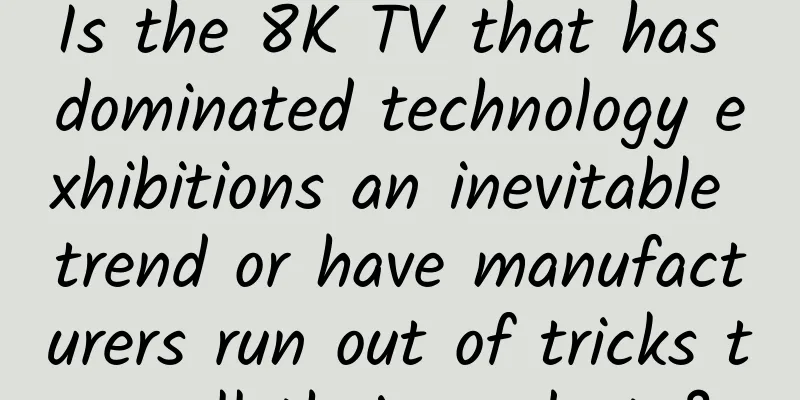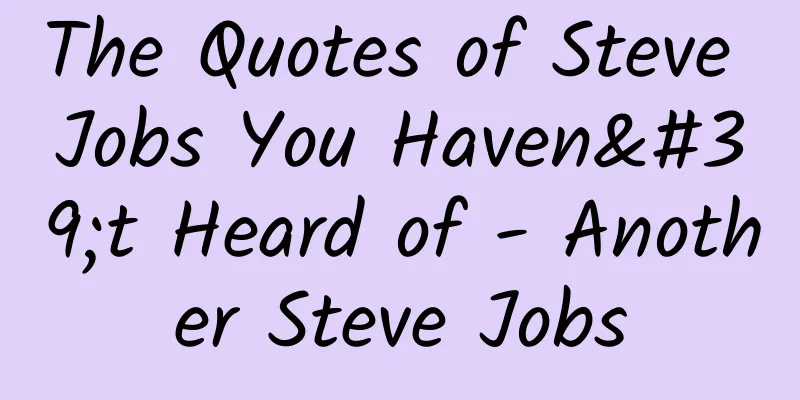$1.3 billion deal aborted: iPad's business prospects unclear?

|
While the iPad unexpectedly sold well in some areas of the United States (such as the San Francisco Bay Area) on Black Friday this year, giving a boost to those in the industry who believed that the iPad still had a market, the Los Angeles school district's plan to deploy $1.3 billion worth of iPads to 640,000 students by the end of this year was aborted. At the same time, the latest statistics from IDC show that in the third quarter, Google sold 715,000 Chromebooks in the education market, which is higher than the sales of 702,000 units of Apple iPad. This is the first time that Chromebook has defeated its competitor iPad in the education market. It is a well-known fact that iPad has always been in an absolute leading position in the US education market (tablet computer). Of course, it is not objective to conclude that iPad has lost its advantage in the education market based on this alone, but one thing is certain, that is, iPad is not irreplaceable in the education market, just like it is in the consumer market. This is what Apple should be vigilant about, and it also casts a shadow on the future development of iPad in the enterprise market. As we all know, iPad's share of the tablet market is declining due to the impact of large-screen smartphones (including the iPhone 6 released not long ago), low-priced Android tablets and the long update cycle of tablets themselves. This is why Apple is teaming up with IBM to push iPad into the enterprise market. For example, Apple recently released a new TV commercial with the theme of "Change" for its iPad Air 2 tablet. Unlike the previous promotion of iPad games and entertainment functions, the new advertisement shows its professional-level applications in a variety of professional scenarios. For example, drawing application Tayasui Sketches, photography application iStopMotion Plus, automotive manufacturing application OBD Fusion and AutoCAD 360, etc., plus the rumored release of the 12.9-inch iPad tablet next year, it is not difficult to see that the development focus of the iPad is shifting from pure entertainment and games to professional and customized enterprise applications. Then the question is, once entering the enterprise market, Apple will inevitably compete with cloud applications represented by Google Chromebook and ecosystems represented by Microsoft's traditional PCs, which are completely different from the iPad in the consumer market. First, let's look at Chromebook. For enterprises, Chromebook is not only cheaper, but also easier to work with enterprises due to its cloud-based application model or cloud-based application. In addition, Google's Docs already has many enterprise users. While increasing the difficulty of iPad's success in the enterprise market, it is also a big test for Apple's pursuit of high-profit iPad model. Moreover, Apple is cooperating with IBM, and both parties are pursuing profit margins. So how attractive is the enterprise mobile solution jointly created by the two (iPad and IBM's solution) in the enterprise market that focuses on cost or TCO? In fact, the failure of the above-mentioned $1.3 billion order is related to the high cost of iPad (due to hardware and usage model). Apart from Google, the biggest competitor of iPad in the enterprise market is Microsoft, or more precisely, the enterprise application ecosystem that Microsoft has accumulated and inherited in the traditional PC market. This ecosystem is not only huge in number, but also has many partners. More importantly, this enterprise application ecosystem is different from the previous consumer-oriented ecosystem for tablet computers, as it takes into account a high degree of customization and integration capabilities. For example, in the fast-moving consumer goods industry, although the use of tablet devices for product display has become a trend, for fast-moving consumer goods companies, what is important is product sales and analysis of consumer behavior after product display. This is not as simple as display and mobile payment, but requires effective interaction with back-end databases such as ERP and CRM. However, for solution providers, if they choose the iOS platform for deployment, it not only means increasing the difficulty of development, but also makes it more difficult to integrate with enterprise systems, which is the advantage of the Windows platform (tablets and PCs). In addition, once enterprise users involve user authentication management, Office, or integration with back-end systems in the mobile payment process, Windows will undoubtedly have better compatibility than iOS. Of course, considering that many peripheral devices need to be connected to USB or original serial ports, the compatibility advantage of Windows tablets in terms of interfaces can also help enterprise users achieve extremely high scalability. The purpose of our example here is to illustrate that if the iPad wants to succeed in the enterprise market, factors that are highly related to enterprise application efficiency, such as high customization capabilities for industry needs, compatibility, and scalability, are crucial. Because the iPad was previously mainly used for consumer applications, although it also has a certain market share in the so-called enterprise market, everyone knows that the enterprise market that Apple and IBM are going to enter is completely different from the previous enterprise market (customization, integration, etc.). This is also the main reason why the industry is worried about the iPad's poor prospects in the enterprise market or its commercial use. However, since Apple and IBM announced their partnership in July this year, hundreds of companies around the world have reportedly expressed interest in IBM's Mobile First solution for the iOS platform. IBM and Apple have released the first batch of jointly developed enterprise applications, which have been released in six fields, including banking, government, insurance, retail, travel/transportation and telecommunications, and have already obtained 50 enterprise customers. Nevertheless, in front of Google (the cloud approach with great cost advantages) and Microsoft (enterprise application ecosystem), the prospects for commercial application of iPad are still unclear. As a winner of Toutiao's Qingyun Plan and Baijiahao's Bai+ Plan, the 2019 Baidu Digital Author of the Year, the Baijiahao's Most Popular Author in the Technology Field, the 2019 Sogou Technology and Culture Author, and the 2021 Baijiahao Quarterly Influential Creator, he has won many awards, including the 2013 Sohu Best Industry Media Person, the 2015 China New Media Entrepreneurship Competition Beijing Third Place, the 2015 Guangmang Experience Award, the 2015 China New Media Entrepreneurship Competition Finals Third Place, and the 2018 Baidu Dynamic Annual Powerful Celebrity. |
<<: Consumers: Apple Watch is more fashionable than other smart watches
Recommend
To create a hit short video, keep these points in mind when writing a convincing copy!
The Internet industry changes its trends almost e...
2022 Alipay Collection of Five Blessings Official Guide: More than 1,000 merchants will issue blessing cards
Although it is complained by many people every ye...
3 tips for a successful marketing campaign!
What are the elements of a successful marketing c...
How does APP do data analysis?
Nowadays, data analysis is a must-talk about ever...
Wuhan welcomes the first batch of college students returning to school, they are finally back! I really want to go to class!
On August 22, students from the Shouyi Campus of ...
Searching for the original ribosome and recreating the moment when life first emerged 4 billion years ago
The evolution of life on Earth is a long waltz of...
Swollen lymph nodes, it's better to have pain than no pain! You can check yourself by touching these parts...
There is a magical organ in our body. It is usual...
5 ways to boost private education and training traffic
2020 is called the "first year of private do...
4 secrets to creating explosive articles
Popular articles have their inherent commonalitie...
10 Observations on E-commerce Marketing in 2020
This article, which contains 10 observations for ...
The traffic ranking of information flow platforms in August, the first place is actually...
Are there always a few days every month when traf...
Ten years have passed, Tencent announced: WebQQ will stop service on January 1, 2019
Recently, Tencent QQ web version official website...
How to spend less money and do the most effective advertising?
How to spend less money? When we talked about bra...
Is tomato a vegetable or a fruit? Let’s start with a strange case…
In 1893, the U.S. Supreme Court heard a peculiar ...









